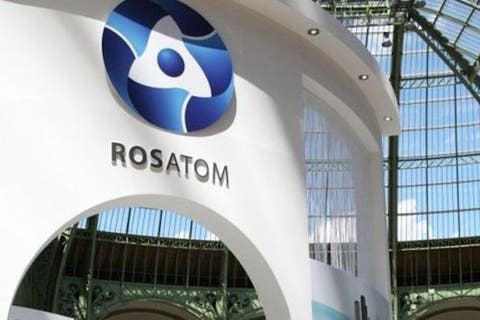Mandela Day is a global call to action that celebrates the idea that each individual has the power to transform the world and the ability to make an impact. “Education is the most powerful weapon which you can use to change the world,” said Nelson Mandela.
Russian State Atomic Energy Corporation Rosatom pays a great of attention to sustainable social projects across the globe. This year Rosatom is supporting the Bokgoni Technical Secondary School to protect its learners against Covid-19 as well as keep them well nourished. The school’s mission is to develop the intellectual, physical, social and leadership abilities of the learners as well as to empower the learners with the knowledge, skills and attitudes needed in order to achieve on all levels of society.
Ryan Collyer, Acting CEO of Rosatom Central and Southern Africa noted that the company worked closely with the South African Young Nuclear Professionals (SAYNPS) to select the school. “We were very impressed by Bokgoni Technical School and the dedication shown by its headmaster and teaching staff to bettering the lives of these learners, particularly in these unprecedented and difficult times,” said Collyer.
Rosatom will improve the sustainablility of the schools current feeding scheme by building two aquaponic greenhouses. To fulfill the school’s need for fresh healthy produce, to not only keep the learners fed but also mentally focused, Rosatom chose to partner with local company La Pieus Aqua (LPA). The CEO of LPA, 18 year old environmental activist Rikalize Reinecke believes that ‘Aquaponics is the most sustainable farming method of the new century, as one system can feed a family of 4-6 people sustainably.’[3]
Rosatom will also provide the school with personal protective equipment and foot operated hand sanitizer dispensers which will be installed in every class room and common areas, as well as a six months’ supply of sanitizer to assist in keeping the leaners and staff safe from Covid -19.
George Sono, Principal of the Bokgoni Technical Secondary School highlighted that the school has already benefitted greatly from the South African Nuclear Energy Corporation (Necsa) “Schools of Nuclear Specialisation Programme”, which also sees learners graduating from the school and entering Necsa’s learning academy. “We really doappreciate Rosatom’s thoughtful Mandela Day initiative. We truly believe that this project will improve safety conditions at the school, contribute to better academic performance as well as boost students’ awareness on sustainable development.”
“The basic conсept behind aquaponics is sustainable development and environmental responsibility which is directly in line with Rosatom’s vision and mission. We therefore feel that this initiative is a great example of how the nuclear industry is able to support South Africa’s young people and contribute to their education,” concluded Collyer.
NIKUZE NKUSI Diane






